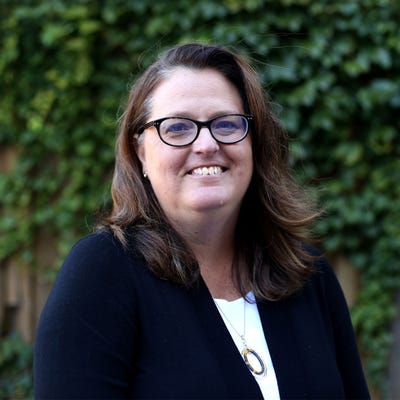CEO Jason Hart calls Aldi's Winn-Dixie acquisition 'a landmark moment in our company history'CEO Jason Hart calls Aldi's Winn-Dixie acquisition 'a landmark moment in our company history'
Q&A: The head of the discount grocery chain that just signed a deal to buy Winn-Dixie and Harveys Supermarkets from Southeastern Grocers talks with WGB about his company's growth strategy, potential store conversions and more. Q&A: The head of the discount grocery chain talks with WGB about the unexpected deal with Southeastern Grocers as well as his company's growth strategy, potential store conversions and more.
August 22, 2023

Jason Hart was named CEO of Aldi US in 2015, and under his leadership, the German discount grocer has experienced unprecedented growth. Aldi entered the U.S. market in 1976 after opening its first store in Iowa. It has since become one of the country's fastest-growing grocers, surprising just about everyone with the announcement last week that it intends to expand its footprint even further by entering into a deal to buy Southeastern Grocers' Winn-Dixie and Harveys Supermarkets chains, which would add about 400 locations to its portfolio.
The discount grocer, which frequently opens multiple new stores per week, now boasts an even greater market share in the Southeast, which is heating up to be a battleground in grocery. In an email interview with WGB Editor Diane Adam, Hart details how growth in the Southeast is key to the grocer's strategy, plans for converting the SEG supermarkets to Aldi stores and more. Here are edited excerpts of the interview.
WGB: The National Retail Federation earlier this year described Aldi as gaining U.S. market share “through an under-the-radar strategy." The news of Aldi acquiring the Winn-Dixie and Harveys Supermarkets chains from Southeastern Grocers (SEG) certainly fits this description, would you agree?
JASON HART: This announcement is a big step for our growth story. We’ve been opening about 100 new stores a year over the past 10 years, and this year Aldi is planning to open 120 new stores nationwide to reach 2,400, in addition to this acquisition. Whenever I visit stores across the country, the most common thing customers ask me is, “When are you going to open a store closer to where I live?”

Aldi will soon reach its store count goal of 2,400 in the U.S. / Photo courtesy: Aldi
As Aldi grows, more shoppers are discovering how Aldi saves them time and money, and they keep coming back. It’s why we’re one of America’s fastest-growing retailers, and why we’ve welcomed 7.6 million new customers into our stores already in 2023 to date.
All of this customer love and growth across the country is because of our disciplined approach to operating with simplicity and efficiency. Our continued commitment to offering shoppers exactly what they need, at the lowest prices in the market will continue attracting new shoppers in any region we enter and drive our growth for years to come.
WGB: Southeastern Grocers (SEG) had been reportedly mulling a sale. What drew Aldi into this acquisition and what was the timeline leading up to this decision?
HART: This is truly a landmark moment in our company history. The Southeastern region has been a priority market for Aldi for quite some time, and this acquisition allows us to deepen our presence there. Building on our growth momentum, the acquisition of Winn-Dixie and Harveys Supermarket stores is a natural extension of the work we’ve already been doing in this region and allows us to expand into new communities. The move to acquire a solid core business with a well-located store footprint and great people allows us to get closer to our customers and deliver more value and convenience at a time when saving money on groceries is more important than ever.
Since first entering the region in the mid-1990s, we’ve invested more than $2.5 billion in the region to deepen our presence in the Southeast. In fact, earlier this year, we opened our 26th distribution center, in Loxley, Alabama, to better serve the area. We’re looking forward to meeting the call for Aldi locations across the region to deepen the Aldi fandom, introduce ourselves to new shoppers and prove to Southeastern communities they can rely on us for great products at the lowest possible prices during a time when they need it most.
WGB: How does Aldi plan to bring a more conventional supermarket with a larger format into its store base and how will that play out?
HART: Right now, Aldi and Southeastern Grocers remain separate companies and will continue to operate independently until the transaction closes in the first half of 2024. We have immense trust and respect for the experienced leadership team at Southeastern Grocers, who will continue to focus on running Winn-Dixie and Harveys Supermarket stores with the same level of commitment and focus on its customers that people have come to expect.
We’re working through the details and will be very thoughtful around which stores we’ll convert to Aldi and which will remain as Winn-Dixie and Harveys Supermarket stores. While many Winn-Dixie and Harveys Supermarket stores will convert to the Aldi format over the course of several years, a meaningful amount will continue to operate under their respective banners. As is typical in retail footprint planning, many factors will go into what will be a multi-year conversion process, including local market dynamics like population density and availability of other grocery options, traffic patterns, and most importantly, customer need.
Opening new stores is not new to us, and we’re confident in our ability to make the conversion process as positive and seamless as possible for customers. With this acquisition, our focus will be to continue to serve Southeast shoppers, provide unchanged access to quality, affordable groceries, and bring our employee-focused culture and market-leading wages and benefits to more markets in the Southeast. With a carefully selected range of products and a smaller store footprint, we’re able to cut costs and help more residents in the Southeast save up to 40% on their grocery bills.
WGB: Aldi will soon reach 2,400 stores in the U.S. To date, the company is less than 100 stores away from reaching that goal, which is part of the company’s 2023 strategy. With this new move to acquire Winn-Dixie and Harveys, what does this reveal about Aldi growth, not only in the Southeast but nationwide?
HART: The fact is, when Aldi comes to town, customers save money. And that simple equation creates so much opportunity for Aldi to open more stores in the Southeast, and across the country.

Aldi is known for its low prices on store brands. / Photo courtesy: Aldi
It’s easy to see why Aldi has become a grocery destination for customers. With food prices still high and the need for access to affordable groceries more important than ever before, Aldi has a significant opportunity to help more people save on their grocery bills. Our ability to grow so quickly is because people don’t want to spend more than they have to on the food and essentials they need and they know they can count on us for great products at the lowest possible prices every time they shop our aisles.
Read more about:
AldiAbout the Author
You May Also Like






